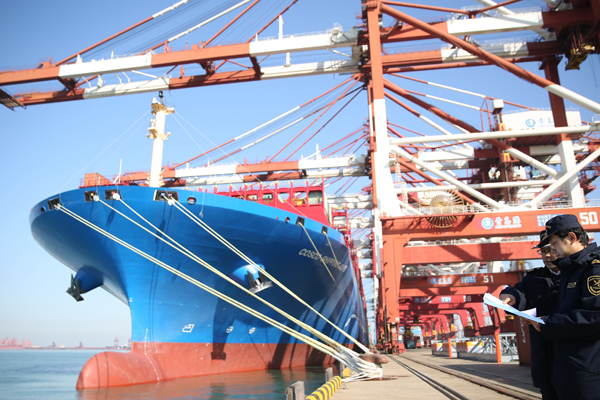US should not force China to shut door to it: China Daily editorial


In an opinion piece for the Financial Times this week, US President Donald Trump’s top trade adviser Peter Navarro accused Beijing of building “a Great Wall of denial” about what he alleged was its “illicit and protectionist” behavior.
Well-known for his extremely hawkish views on China, such allegations roll lightly off his tongue, but when he went on to spin the suggestion that the Trump administration is acting to realize its vision of a “global trading system free of the imbalances and unfair practices”, even he must have found it hard to get the words out.
Not only has the Trump administration been acting like a child in a playpen coveting the other kids’ toys by withdrawing or threatening to withdraw from previously agreed deals, it has also been threatening to build a Great Wall of tariffs if it doesn’t get the favorable treatment to which it believes it is entitled.
Navarro made it clear why the United States has been picking on China with its tariff threats by noting that since China joined the global trading system in 2001, its GDP has expanded from $1.3 trillion to $11.2 trillion. The US’ envy of a rival with such prowess risks breeding divisions that may be damaging to the global trading system if it does not keep it in check.
For Beijing has already made it clear that it is not going to jump through hoops for Washington.
Which should come as no surprise, since China is no longer a gauche newcomer to international trade etiquette and it is quite capable of standing up to the US’ attempts to browbeat it.
Although President Xi Jinping vowed to further open up the world’s second-largest economy in his speech at the Boao Forum for Asia on Tuesday, that should not be misinterpreted as China caving in to US pressure. The moves, which the White House has called an encouraging step forward, were already on the cards before the current frictions started rubbing the two countries the wrong way. The measures are being rolled out on China’s schedule to meet its development needs, they are not being introduced overnight to satisfy the US administration’s demands.
But that is not to say the moves won’t benefit the US, they will, but only if stops trying to force China to do its bidding. If it persists with applying a zero-sum mentality to trade with China, it is unlikely they will be able to make “great progress together” as it will probably not be welcome to step through the door being opened to China’s financial services sector, for instance.
The trade and investment liberalization heralded by Xi will present many opportunities from which the US can benefit, but only when it realizes it is folly to try and punish your neighbor by fire for an imagined slight when you live next door.


































